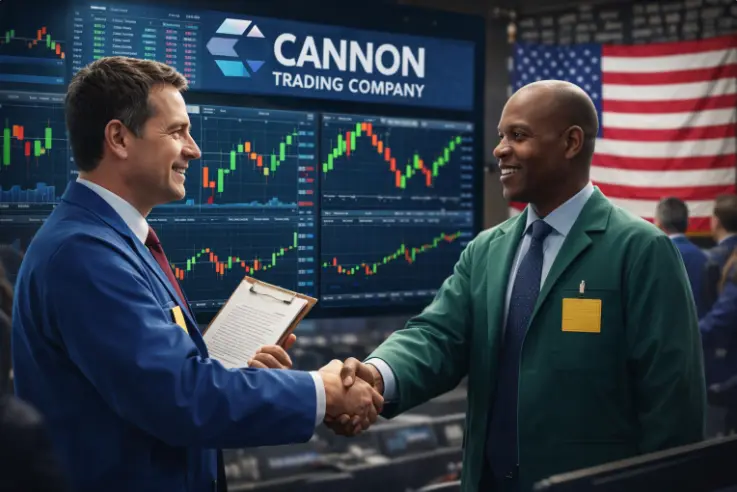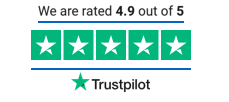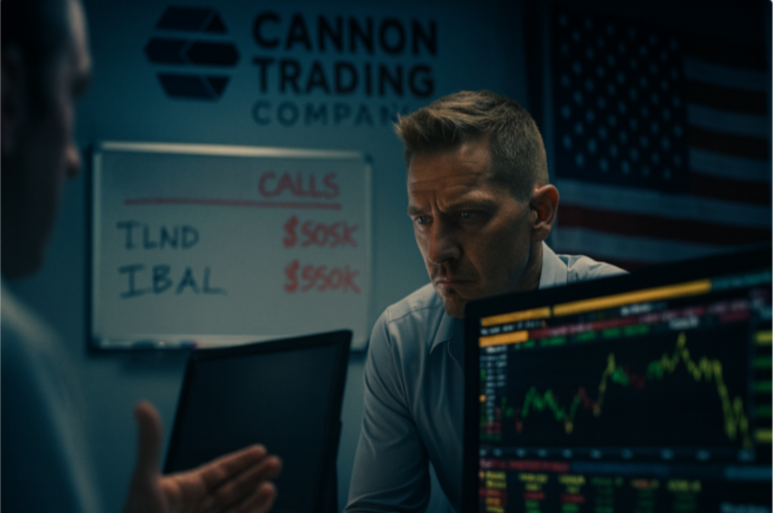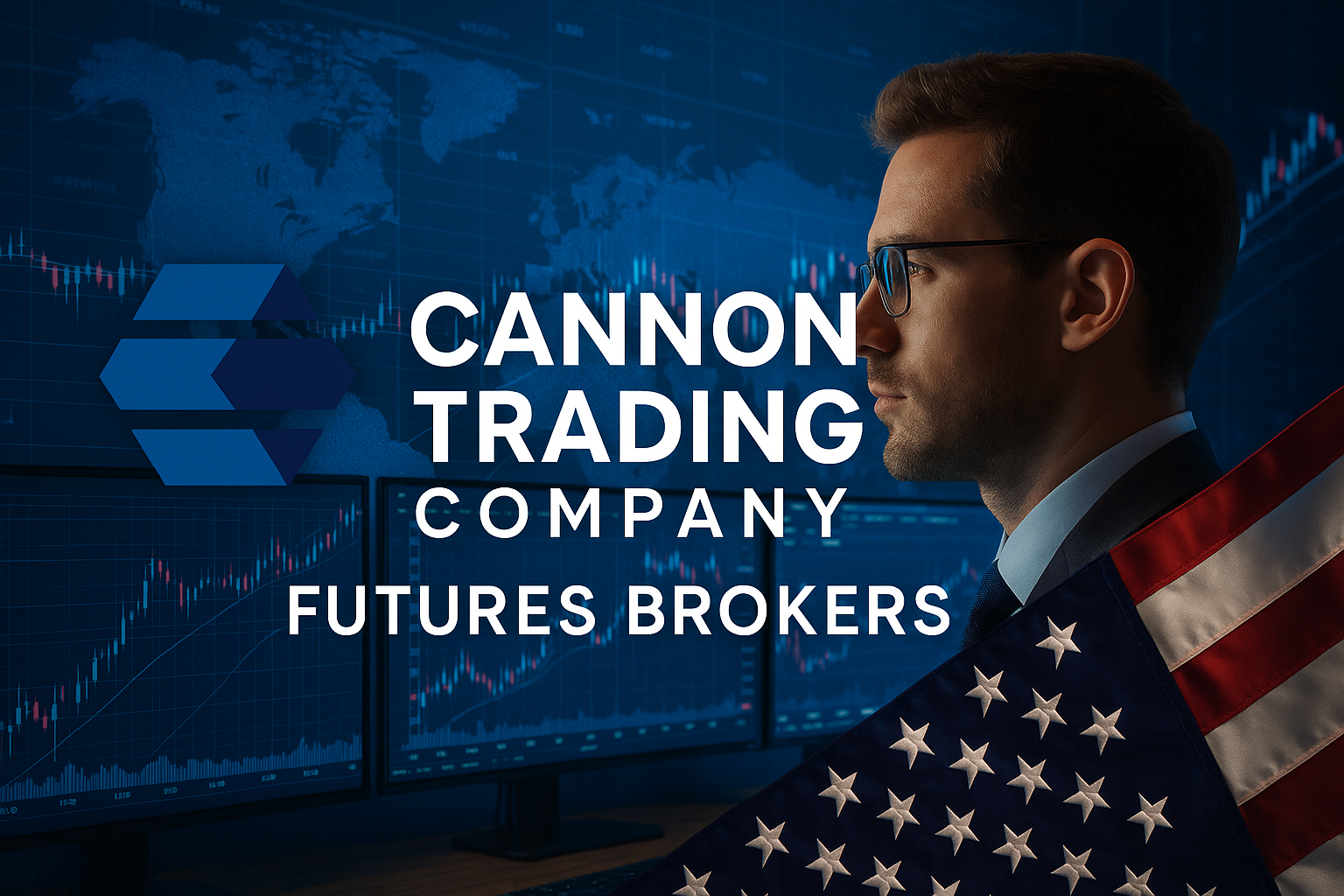Futures Broker


In the increasingly complex world of global derivatives markets, futures brokers play a far more critical role than many traders initially realize. While technology, platforms, and data feeds often dominate the conversation, the reality is that futures trading remains a relationship-driven business at its core. Execution quality, risk management guidance, regulatory oversight, and responsive human support all hinge on the broker standing between the trader and the exchange.
As futures markets have evolved over the decades—becoming faster, more electronic, and more global—the number of firms calling themselves futures brokers has grown substantially. Yet not all futures brokers are created equal. The difference between a firm that simply offers access to markets and one that provides real value can be profound, particularly during volatile periods when experience, judgment, and professionalism matter most.
This is where Cannon Trading Company stands apart.
Established in 1988, Cannon Trading Company represents what futures brokers were always meant to be: knowledgeable professionals with decades of experience, a deep understanding of markets, and a commitment to customer service that goes far beyond the transactional. In an industry increasingly crowded with short-lived firms and automated onboarding portals, Cannon Trading Company continues to demonstrate why longevity, expertise, and personal service remain the defining characteristics of elite futures brokers.
At the most basic level, futures brokers provide access to futures exchanges, enabling clients to trade standardized contracts across asset classes such as equities, interest rates, energy, metals, agriculture, and cryptocurrencies. However, reducing the role of futures brokers to order routing alone is a fundamental misunderstanding of their value.
Professional futures brokers serve as educators, risk managers, compliance guides, and strategic partners. They help clients understand margin requirements, contract specifications, liquidity conditions, and the real-world implications of leverage. They assist traders in selecting appropriate platforms, data feeds, and execution methods based on experience level and trading style. Most importantly, they act as a human safeguard in an otherwise fast-moving, unforgiving market environment.
When volatility spikes, systems fail, or unexpected market events occur, the presence of a seasoned futures broker can make the difference between orderly decision-making and costly mistakes. This is why traders who last in this business tend to gravitate toward futures brokers with proven track records rather than those offering the lowest headline commissions.
Futures trading is not new. These markets have existed in one form or another for centuries, evolving from agricultural hedging instruments into some of the most sophisticated financial products in the world. A futures broker who has lived through multiple market cycles brings a level of perspective that cannot be replicated by algorithms or newly formed firms.
Cannon Trading Company was founded in 1988, a time when futures trading was still largely conducted via open outcry pits. Since then, the firm has navigated the transition to electronic trading, the rise of algorithmic execution, multiple regulatory overhauls, financial crises, flash crashes, and unprecedented periods of global volatility. This depth of experience is not theoretical—it is lived.
Many modern futures brokers were formed in the aftermath of recent market booms, often without having experienced a true systemic stress event. Cannon Trading Company, by contrast, has remained active and relevant through decades of market evolution. That longevity speaks volumes about internal risk controls, ethical business practices, and an unwavering commitment to client success.
Professionalism in futures brokerage extends far beyond polished branding or sleek websites. It is reflected in how brokers communicate with clients, how transparently they explain risks, and how diligently they adhere to regulatory standards.
Cannon Trading Company has built its reputation on professionalism at every level of operation. From onboarding to daily account support, clients interact with experienced professionals who understand both the technical and emotional realities of futures trading. This includes clear explanations of margin usage, contract expiration, rollovers, and the mechanics of different futures markets.
Unlike firms that rely heavily on automated systems and generic support channels, Cannon Trading Company emphasizes direct access to knowledgeable representatives. Clients are not treated as ticket numbers or anonymous account IDs. Instead, they are engaged as individuals with unique goals, risk tolerances, and experience levels.
This professional approach fosters trust—an essential but often overlooked element in futures trading relationships.
While technology is essential, knowledge is irreplaceable. Many futures brokers focus heavily on platform features without ensuring that clients fully understand how to use them effectively. Cannon Trading Company takes a different approach.
With decades of hands-on market experience, Cannon’s team possesses deep knowledge of futures contracts, market microstructure, and execution nuances. This expertise allows them to guide traders in selecting platforms and tools that genuinely align with their trading objectives rather than pushing one-size-fits-all solutions.
Whether a client is trading equity index futures, interest rate contracts, or commodity markets, the value of having a broker who understands the unique behavior of each market cannot be overstated. Knowledgeable futures brokers help traders avoid common pitfalls such as misinterpreting tick values, underestimating volatility, or misunderstanding settlement procedures.
This level of insight is particularly valuable for newer traders, but it remains just as critical for seasoned professionals navigating evolving market conditions.
In an industry where many firms promote “24/7 support” but deliver little more than automated responses, genuine customer service has become a rare differentiator among futures brokers. Cannon Trading Company stands out precisely because customer service is not an afterthought—it is a cornerstone of the firm’s identity.
Clients working with Cannon Trading Company consistently highlight responsiveness, clarity, and accessibility as defining strengths. When questions arise—whether related to margin calls, platform functionality, or market conditions—clients can speak directly with experienced professionals who understand the context of their accounts.
This human connection becomes especially important during periods of market stress. Futures markets can move rapidly, and delays or miscommunication can have significant financial consequences. Cannon Trading Company’s commitment to second-to-none customer service ensures that clients are never left navigating critical moments alone.
Trust is not built overnight in the futures industry. It is earned through consistent behavior, regulatory compliance, and a demonstrated commitment to ethical standards. Cannon Trading Company’s establishment in 1988 places it among a select group of futures brokers that have stood the test of time.
Over the decades, the firm has built lasting relationships with individual traders, institutional clients, and industry partners. This longevity reflects a business model grounded in sustainability rather than short-term growth tactics. In an industry where firms frequently merge, rebrand, or disappear altogether, Cannon Trading Company’s continued independence and stability are meaningful indicators of strength.
For traders evaluating futures brokers, longevity should not be underestimated. A firm that has survived multiple market cycles is far more likely to understand the realities of risk, regulation, and client needs than one that has only operated during favorable conditions.
The best futures brokers do not simply execute trades—they act as strategic partners. They help clients think critically about risk management, capital allocation, and long-term sustainability in the markets.
Cannon Trading Company embodies this philosophy. Rather than encouraging excessive leverage or unrealistic expectations, the firm emphasizes education, discipline, and informed decision-making. This approach aligns with the realities of futures trading, where success is often measured by longevity and consistency rather than short-term gains.
By working closely with clients, Cannon Trading Company helps traders develop strategies that fit their experience level and financial objectives. This partnership-oriented mindset distinguishes the firm from brokers that focus solely on transaction volume.
The futures brokerage landscape is crowded, with many firms competing primarily on price. While low commissions can be attractive, they rarely compensate for poor service, limited support, or a lack of expertise.
Cannon Trading Company demonstrates that value is not defined solely by cost. Professionalism, decades of experience, deep market knowledge, and exceptional customer service collectively create an offering that far exceeds what many futures brokers provide.
In an environment where technology continues to level the playing field, human expertise and integrity remain the true differentiators. Cannon Trading Company’s ability to blend modern trading infrastructure with old-school professionalism is what sets it apart.
Choosing among futures brokers is one of the most important decisions a trader can make. The right broker provides not just market access, but guidance, stability, and confidence in navigating complex financial markets.
Since its establishment in 1988, Cannon Trading Company has exemplified what a professional futures broker should be. With decades of experience, a deep reservoir of knowledge, and customer service that is truly second to none, the firm continues to stand apart in an increasingly impersonal industry.
For traders who value professionalism, trust, and long-term partnership over gimmicks and shortcuts, Cannon Trading Company represents a clear and compelling choice among futures brokers. In a business where experience matters and service can define outcomes, Cannon Trading Company remains a benchmark for excellence.
Ready to start trading futures? Call us at 1(800)454-9572 (US) or (310)859-9572 (International), or email info@cannontrading.com to speak with one of our experienced, Series-3 licensed futures brokers and begin your futures trading journey with Cannon Trading Company today.
Disclaimer: Trading Futures, Options on Futures, and retail off-exchange foreign currency transactions involve substantial risk of loss and are not suitable for all investors. Past performance is not indicative of future results. Carefully consider if trading is suitable for you in light of your circumstances, knowledge, and financial resources. You may lose all or more of your initial investment. Opinions, market data, and recommendations are subject to change at any time.
Important: Trading commodity futures and options involves a substantial risk of loss. The recommendations contained in this article are opinions only and do not guarantee any profits. This article is for educational purposes. Past performances are not necessarily indicative of future results.
This article has been generated with the help of AI Technology and modified for accuracy and compliance.
Follow us on all socials: @cannontrading
















